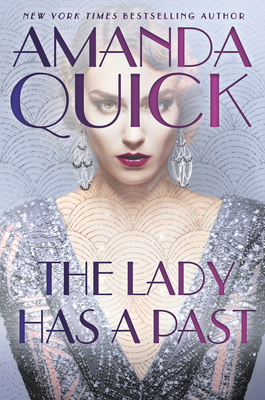 The Lady Has a Past (Burning Cove #5) by Amanda Quick
The Lady Has a Past (Burning Cove #5) by Amanda Quick Format: eARC
Source: supplied by publisher via Edelweiss, supplied by publisher via NetGalley
Formats available: hardcover, large print, paperback, ebook, audiobook
Genres: historical romance, paranormal, romantic suspense
Series: Burning Cove #5
Pages: 352
Published by Berkley on May 4, 2021
Purchasing Info: Author's Website, Publisher's Website, Amazon, Barnes & Noble, Kobo, Bookshop.org
Goodreads
Beauty and glamour meet deception and revenge in this electrifying novel by New York Times bestselling author Amanda Quick.
Investigative apprentice Lyra Brazier, the newest resident of Burning Cove, is unsettled when her boss suddenly goes on a health retreat at an exclusive spa and disappears without another word. Lyra knows something has happened to Raina Kirk, and she is the only one who can track her down. The health spa is known for its luxurious offerings and prestigious clientele, and the wealthy, socialite background Lyra desperately wanted to leave behind is perfect for this undercover job. The agency brings in a partner and bodyguard for her, but she doesn't get the suave, pistol-packing private eye she expected.
Simon Cage is a mild-mannered antiquarian book dealer with a quiet, academic air, and Lyra can't figure out why he was chosen as her partner. But it soon becomes clear when they arrive at the spa and pose as a couple: Simon has a unique gift that allows him to detect secrets, a skill that is crucial in finding Raina.
The unlikely duo falls down a rabbit hole of twisted rumors and missing socialites, discovering that the health spa is a façade for something far darker than they imagined. With a murderer in their midst, Raina isn't the only one in grave danger—Lyra is next.
My Review:
 All the ladies in this story have a past. Honestly, all the ladies in every Amanda Quick/Jayne Ann Krentz/Jayne Castle story have a past. It makes them all that much more interesting to read about – and just that much more fascinating for the heroes who oh-so-frequently come to rescue them – but generally end up fighting right alongside them.
All the ladies in this story have a past. Honestly, all the ladies in every Amanda Quick/Jayne Ann Krentz/Jayne Castle story have a past. It makes them all that much more interesting to read about – and just that much more fascinating for the heroes who oh-so-frequently come to rescue them – but generally end up fighting right alongside them.
Raina Kirk, who becomes the focus of the investigation rather than the heroine of this particular story, very definitely has a dark and dangerous past. A past that her lover Luther Pell – hotel and casino owner and occasional government secret agent – thought he knew about.
But when that past reaches out and snatches Raina, Luther discovers that he didn’t know as much as he thought he did. He is, however, smart enough to know that as much as he wants to rush in guns blazing, that he’s a bit too close to the case – and more than a bit too high profile – to investigate Raina’s disappearance without tipping all the cards.
That’s where Simon Cage and Lyra Brazier come in.
Raina’s last known location was a luxurious and exclusive – read that as expensive – deluxe hotel, health spa and over-the-top beauty emporium. All done up in shades – and scents – of the exclusive violet perfume that the beauty products maven Madam Guppy has created as her signature perfume.
But that nearly overpowering smell of violets is covering up something rotten. It’s up to Simon and Lyra to get to the bottom of the stink and rescue Raina – before the poison miasma that surrounds the entire enterprise drags them under.
 Escape Rating B+: This is the fifth book in the author’s Burning Cove paranormal historical romantic suspense series. (I dare you to try and say THAT three times fast!)
Escape Rating B+: This is the fifth book in the author’s Burning Cove paranormal historical romantic suspense series. (I dare you to try and say THAT three times fast!)
While it does tie in a bit with the previous books in the series, (which begins with The Girl Who Knew Too Much), and offers plenty of hints that it is somewhere in the recesses of the Arcane Society that the author invented as Quick, continued into the 20th and 21st centuries as Krentz and shipped out to the stars as Castle.
However, those are hints only, providing a smile for the reader if you’re in the know but not spoiling the enjoyment if you don’t. Although the entire collective series is wonderful and would make a great reading binge if you have not already indulged.
This would also be a plausible place to begin in Burning Cove, as Simon and Lyra are new to the place and the series in this volume, while we haven’t ever exactly seen Raina and Luther’s romance and probably won’t see it in full. They are VERY private people with extremely murky pasts.
But this story is about the pasts of all of the “ladies” that it touches upon. The case begins with the unrevealed parts of Raina’s already shady past but the real focus is on Lyra’s past and her present.
It’s between the wars, the Roaring 20s, and a time when young women had a bit more freedom than previous generations – especially wealthy young women such as Lyra. She’s not exactly running away, more like walking away swiftly and deliberately from a purely decorative life that did not suit her – while heading towards a life filled with both purpose and adventure – if she can just figure out exactly what that would be.
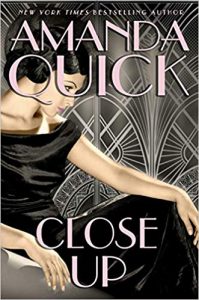 And one of the things that I love about anything tied to the Arcane Society, however tangentially as Burning Cove seems to be, is the way that the heroines are either forced to or decide to ignore the restrictions placed on women in every time period – at least so far – and live the lives they choose – damn the torpedoes and full speed ahead – even with the not-so-occasionally forced step back.
And one of the things that I love about anything tied to the Arcane Society, however tangentially as Burning Cove seems to be, is the way that the heroines are either forced to or decide to ignore the restrictions placed on women in every time period – at least so far – and live the lives they choose – damn the torpedoes and full speed ahead – even with the not-so-occasionally forced step back.
Something that this particular story displays in abundance is the way that Lyra insists on taking charge of her own life and her own talents. Simon wants to protect her – increasingly so and in spite of himself – but ends up acknowledging that while she is differently talented she is equally talented. They make good partners – in investigation, in adventure and in romance.
It will take both of them, and both of their talents, to get to the bottom of this messy, misdirected and multi-layered case. It begins with a missing person, but the trail of bodies, living and dead, leads to some very dark places hidden in the shadows of the once – and future – war. Which is perfect, at least story-wise, because it means that there will be more to come in this terrific series!

 The Venice Sketchbook by
The Venice Sketchbook by 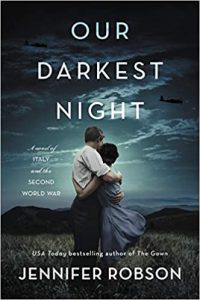 Escape Rating B-: World War II is a rich period for historical fiction of all types and stripes. To the point where I have three books in a row that are set during the same period, Friday’s
Escape Rating B-: World War II is a rich period for historical fiction of all types and stripes. To the point where I have three books in a row that are set during the same period, Friday’s 
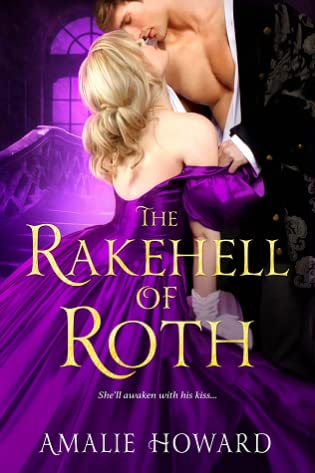 The Rakehell of Roth (Regency Rogues, #2) by
The Rakehell of Roth (Regency Rogues, #2) by 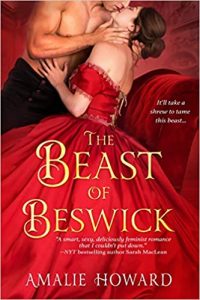 And that the scene where they save each other from thieves, kidnappers and murderers and then screw each other senseless was the only point where I missed having read the first book in the series,
And that the scene where they save each other from thieves, kidnappers and murderers and then screw each other senseless was the only point where I missed having read the first book in the series, 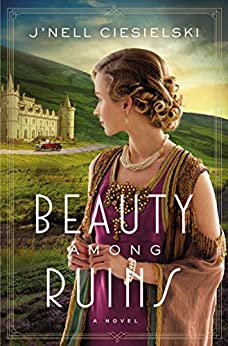 Beauty Among Ruins by
Beauty Among Ruins by  The Girl from the Channel Islands by
The Girl from the Channel Islands by 
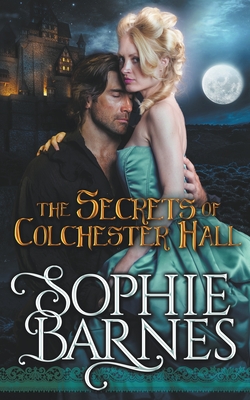 The Secrets Of Colchester Hall by
The Secrets Of Colchester Hall by 
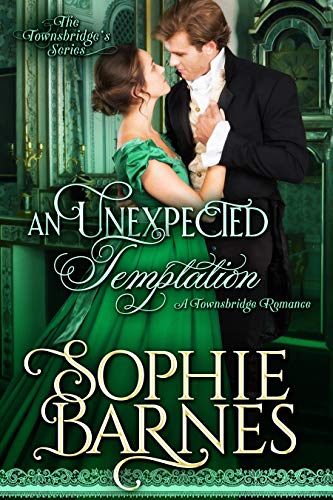 An Unexpected Temptation by
An Unexpected Temptation by 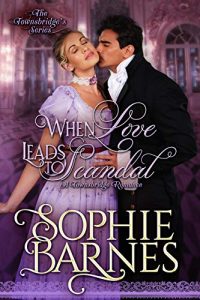 At the very beginning of
At the very beginning of 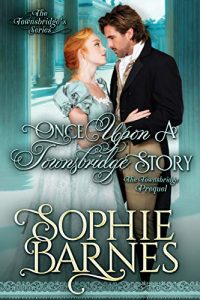 The Townsbridges marry for love. That was true for Margaret and George (their story is in
The Townsbridges marry for love. That was true for Margaret and George (their story is in 
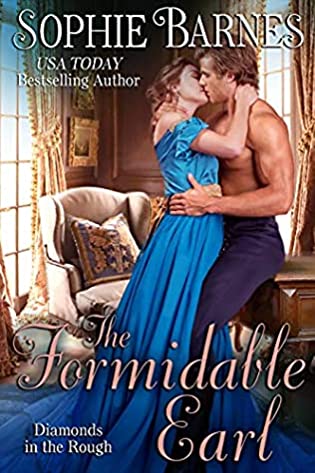 The Formidable Earl (Diamonds in the Rough, #6) by
The Formidable Earl (Diamonds in the Rough, #6) by 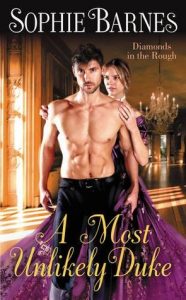 The Formidable Earl harkens back to the first book in this series,
The Formidable Earl harkens back to the first book in this series, 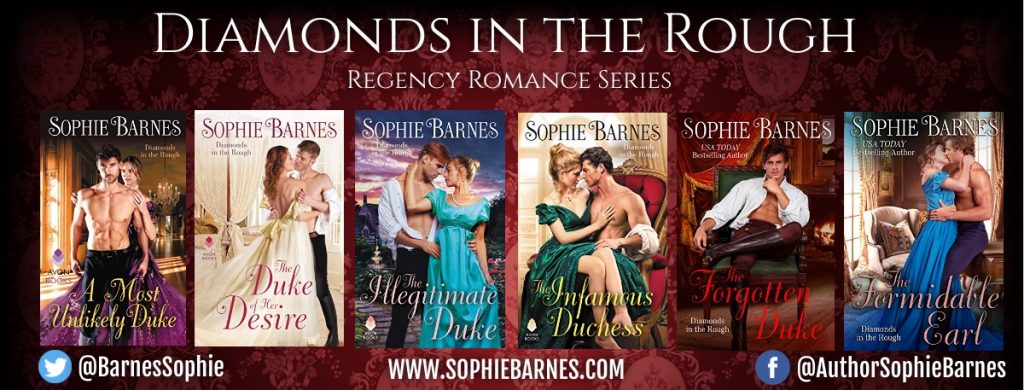
 All of that being said, I really, really liked Ida. She’s a terrific heroine, forthright and proactive with plenty of agency. She was more middle-class to begin with, but society has completely rejected her so she’s pretty much said “to hell with it and the horse it rode in on.”
All of that being said, I really, really liked Ida. She’s a terrific heroine, forthright and proactive with plenty of agency. She was more middle-class to begin with, but society has completely rejected her so she’s pretty much said “to hell with it and the horse it rode in on.”
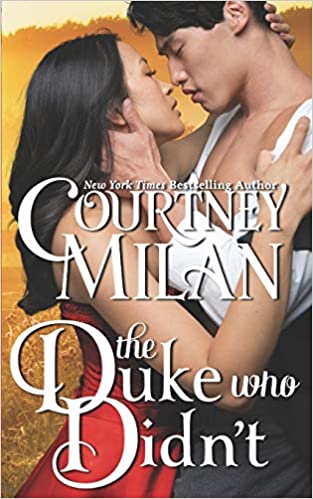 The Duke Who Didn't by
The Duke Who Didn't by 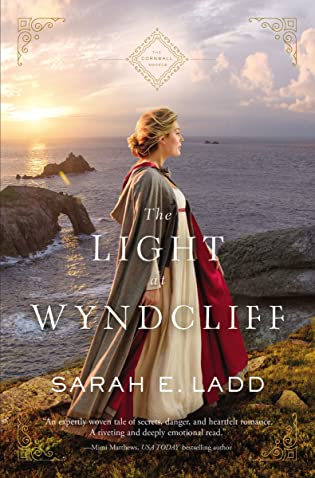 The Light at Wyndcliff (Cornwall, #3) by
The Light at Wyndcliff (Cornwall, #3) by 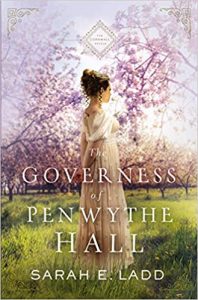 The plot wraps around the sometimes exciting, sometimes dangerous and always criminal smuggling operations that the rougher bits of the Cornish coast are notorious for But this is not a story that romanticizes smuggling. Rather, it paints an all-too-clear portrait of the rot that burrows into the whole town when smuggling – and the protection of it – become the whole town’s economic mainstay.
The plot wraps around the sometimes exciting, sometimes dangerous and always criminal smuggling operations that the rougher bits of the Cornish coast are notorious for But this is not a story that romanticizes smuggling. Rather, it paints an all-too-clear portrait of the rot that burrows into the whole town when smuggling – and the protection of it – become the whole town’s economic mainstay.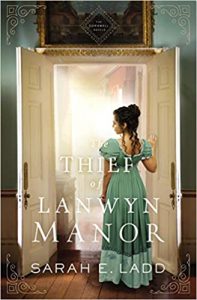 Escape Rating A-: A romance between Liam and Evelyn does happen in this story, but it doesn’t feel like the romance is the point of the story. More like it’s the reward for doing the right thing. Figuring out what that right thing is, that feels like it’s the central point of the story. And that’s the story that swept me away.
Escape Rating A-: A romance between Liam and Evelyn does happen in this story, but it doesn’t feel like the romance is the point of the story. More like it’s the reward for doing the right thing. Figuring out what that right thing is, that feels like it’s the central point of the story. And that’s the story that swept me away.